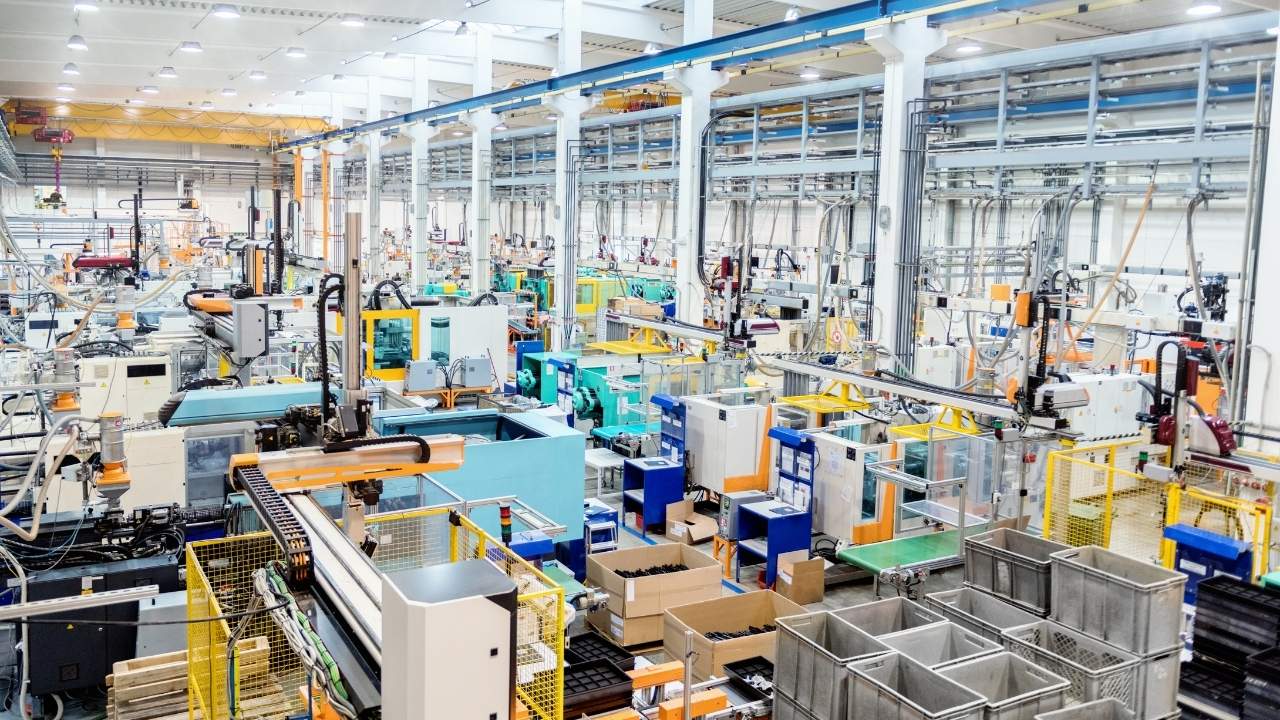Boost your wholesale order fulfillment, inventory, and supply chain operations with an advanced ERP solution. Streamline processes, enhance efficiency, and ensure real-time visibility with intelligent automation. Elevate your business performance and meet customer demands seamlessly.
Optimizing Wholesale Operations with a Holistic Approach
The modern wholesale business ecosystem presents a unique set of challenges related to managing complex supply chains, high order volumes, fluctuating inventory levels, and the need to serve diverse sales channels efficiently. As wholesale operations continue expanding in scale and scope, maintaining optimized processes, end-to-end visibility and high performance becomes increasingly vital yet difficult without the right technology backbone.
An enterprise resource planning or ERP system can serve as a powerful tool to help wholesale enterprises streamline activities, cut costs, and boost productivity. By integrating siloed functions onto a centralized platform, ERP streamlines data flow automates workflows, and surfaces actionable insights. This allows wholesalers to adopt a holistic, enterprise-wide approach that addresses their unique operational complexities.
Why ERP is Important for Wholesale Businesses Operations?
At its core, ERP refers to business software that combines different but interconnected modules for core operations such as finance, human resources, supply chain, and customer relationship management. Through a unified database, ERP consolidates these disparate systems and eliminates data duplication, manual errors, and outdated records.
For wholesalers dealing with myriad processes, suppliers, and customers simultaneously, an integrated ERP solution delivers significant benefits. It provides role-based visibility across the value chain, from procurement to warehousing to multichannel fulfillment. Automation of routine tasks further boosts efficiency. Real-time analytics also empower fact-based planning and decision-making.
Overall, ERP acts as the central nervous system to help wholesale enterprises streamline activities, enhance coordination, and scale up in a sustainable manner. By adopting holistic ERP strategies, wholesalers can systematically address long-standing challenges and future-proof their operations for continued growth.
Key Benefits of ERP for Wholesale Supply Chain Operations
Let us explore some of the major benefits wholesale enterprises can achieve by implementing an integrated ERP system:
- Improved visibility and control over supply chain operations: ERP provides a single source of truth by connecting data across order management, inventory, warehousing, logistics, accounting, and other domains onto one platform. This results in unprecedented end-to-end visibility across the extended supply chain.
- Faster order fulfillment: By automating order processing workflows, ERP systems significantly accelerate order fulfillment. Multi-channel orders are quickly validated, inventoried, processed for packing & shipping, invoiced, and handed off to logistics partners. This enables wholesalers to deliver superior customer service.
- Enhanced inventory accuracy: ERP helps maintain perpetually accurate inventory records in real-time across all warehouses, storage locations, retail outlets, and in transit through continuous tracking of stock movement. This prevents out-of-stock situations that lead to poor customer service as well as overstocking which increases carrying costs.
- Optimized warehouse operations: ERP systems help maximize warehouse storage density, optimize product slotting based on velocity, digitize pick/pack processes, and streamline shipping to boost fulfillment efficiency.
- Lower operational costs: By automating redundant manual processes, optimizing inventory levels, accelerating billing cycles, and enabling data-driven decision-making, ERP allows wholesalers to significantly reduce operating costs.
- Improved analytics & forecasting: ERP provides embedded analytics tools leveraging historical data to generate demand forecasts, identify sales trends, minimize risks, and support data-driven decision-making by executives.
- Enhanced supplier collaboration: ERP allows wholesalers to seamlessly share inventory levels, sales forecasts, production plans, purchase orders, and delivery schedules with suppliers to enable better coordination.
Streamlining the Supply Chain with ERP
A core area where ERP generates value is through its ability to streamline complex supply chain operations. By connecting siloed logistics functions onto a single platform, ERP provides end-to-end visibility from source to delivery. It automates manual tasks like purchase order issuance, goods receipt, inventory allocation, order fulfillment, and transportation tracking.
ERP software connects procurement, manufacturing, logistics, warehousing, and order delivery departments to enable seamless coordination. Integration of different supply chain functions into a unified system provides end-to-end visibility across the supply chain.
With all stakeholders accessing real-time data in the ERP system, supply chain decisions can be made faster and operational bottlenecks addressed on time.
Advanced ERP systems also integrate emerging technologies that enhance planning and execution. For example, IoT sensors and RFID tags automate cycle counts and asset tracking. AI-powered forecasting leverages past demand patterns to optimize replenishment strategies. Blockchain further strengthens traceability and builds supplier trust.
Overall, ERP streamlines wholesale supply chain management by eliminating information gaps, supporting data-driven decision-making in real-time, and integrating physical operations with digital systems seamlessly. This enhances agility, customer fulfillment, and long-term cost optimization.
Optimizing Inventory Management Workflows
Fluctuating inventory is a core challenge for wholesalers dealing with seasonal demand spikes and product transitions. An inventory management system tracks stock levels, monitors orders and deliveries, and maintains optimal inventory. ERP transforms inventory from a liability to a strategic asset through its powerful tracking capabilities.
ERP consolidates inventory data from all warehouses and locations into a single centralized system. Inventory levels and movements are tracked in real-time across the supply chain providing visibility.
Features like lot/bin location management, barcode scanning, cycle counting, and ABC analysis help maintain accurate stock visibility across distributed warehouses. Trigger-based replenishment further aligns stock to dynamic sales patterns. Real-time shortage alerts also prevent stockouts and lost sales.
Advanced ERP systems leverage IoT to automate physical inventory counts and optimize storage space utilization too. Overall, wholesalers benefit from higher inventory turns, leaner carrying costs, and stronger fulfillment through ERP-powered inventory optimization.
Streamlining Order Fulfillment Process
The order fulfillment process consists of order processing, picking & packing, shipping, invoicing, and payments. As order volumes scale exponentially, manual order fulfillment strains wholesale operations and customer experience. ERP helps optimize each stage of the cycle by automating this complex process from end to end to boost efficiency.
ERP automates order entry, validation, inventory allocation, invoicing, and credit verification for faster processing. It connects online and phone orders directly to available inventory levels. System-generated pick/pack lists and shipment notifications then guide fulfillment with minimal errors. Real-time tracking also ensures on-time order delivery.
Advanced ERP tools leverage machine learning to route urgent orders, balance workload, and flag anomalies early. Mobility apps further streamline warehouse fulfillment through voice-guided picking. The end result is faster order processing at higher accuracy levels even during peaks.
Enhancing Multichannel Commerce Agility
Today’s wholesale customers research and transact across websites, retail stores, trade shows, marketplaces, and more. An ERP system supports multi-sales channels through flexible order management. It maintains a unified order repository while allowing customization per channel. ERP provides a centralized order management hub to serve this omnichannel buyer journey seamlessly.
It supports personalized B2B storefronts, flexible quotes, and complex configured product workflows. A single order entry is then automatically routed through the optimized fulfillment process, regardless of source. Customers thus enjoy unified experiences, while wholesalers gain multichannel visibility and efficiency.
Advanced ERP also integrates payment gateways and emerging technologies like AI virtual assistants that enhance self-service capabilities further. This allows wholesale enterprises to future-proof their commerce strategies holistically with one platform.
Optimizing Warehouse Logistics with ERP
Warehouses form the epicenter of wholesale fulfillment operations. Yet managing ever-changing SKUs, seasonal surges and complex storage requirements manually is cumbersome and prone to errors.
ERP brings structure and control to this complex environment. Tools like bin location management, put-to-light systems, voice-guided picking, and automated guided vehicles (AGVs) optimize product placement, inventory retrieval, and overall space utilization.
Advanced analytics also support demand-driven warehouse layout design. Integration with warehouse management systems (WMS) further automates material handling equipment. The end result is higher fulfillment productivity even with limited resources.
Reducing Cost through Strategic Sourcing
Procurement is a major cost lever for distributors. ERP enhances strategic sourcing through supplier information management and collaborative workflows.
Features, like approved vendor lists, competitive bidding, blanket purchase agreements, delivery tracking, and invoice audits, streamline sourcing operations. Multi-tier approval cycles ensure compliance. Documents like specifications, contract terms, and design assets are securely stored for reference.
Supplier scorecards evaluate performance on quality, price, delivery, and more, ranking partners. This visibility into vendor capabilities supports right-partner selection and ongoing negotiation. ERP thus facilitates optimal vendor relationships for value realization.
Leveraging Advanced Analytics for Strategic Planning
Beyond transactional efficiencies, ERP also supports strategic wholesale planning through its powerful analytics suite. By studying historical sales patterns, product hierarchies, customer segments, and market conditions holistically, ERP generates demand forecasts, revenue projections, and key performance metrics.
Insights into high-velocity vs. slow-moving SKUs then guide optimized inventory replenishment and product assortment decisions. Dashboards comparing actual vs. plan also help take mid-course corrective actions. Over time, ERP transforms data into strategic foresight that drives better decision-making across the enterprise.
Robust and integrated ERP software helps break down fragmented systems and data silos holding back traditional wholesale businesses. By consolidating business-critical information onto a unified platform, automating cross-functional workflows, and providing analytical insights, ERP enables wholesalers to enhance efficiency, achieve growth, and increase profitability.
Achieve Excellence in Supply Chain Operation for a Wholesale business with Versa Cloud ERP
Wholesale enterprises that embrace ERP as part of their digital transformation initiatives will be well-positioned to overcome emerging omnichannel challenges and succeed in an increasingly competitive business environment.
Versa Cloud ERP stands as one of the most powerful and integrated enterprise solutions available today for managing complex supply chains and optimizing inventory and warehouse operations.
By consolidating all critical business processes into a unified cloud platform with real-time data visibility, Versa Cloud ERP enables deep integration across departments and trading partners. Inventory, manufacturing, fulfillment, logistics, and finance can all be synchronized for maximum efficiency.
Versa Cloud ERP provides robust functionality tailored for wholesalers and manufacturers such as perpetual inventory management, automated replenishment, dynamic safety stock calculation, and warehouse management system integration. This empowers users to achieve unprecedented levels of inventory accuracy, visibility, and control.
Real-time inventory tracking with RFID sensor integration enables proactive stock monitoring and optimized picking. Combined with Versa’s rapid order processing, fulfillment automation, and real-time analytics, this drives significant performance gains.
With Versa Cloud ERP, supply chain optimization has become a reality. To experience the benefits firsthand, schedule a free personalized demo to experience firsthand how Versa can transform your operations today.
ERP systems are fundamental to the efficient management of a modern supply chain in the manufacturing sector. By integrating various business processes, ERP systems streamline operations, enhance visibility, and improve decision-making, making them indispensable tools for manufacturers aiming to stay competitive in today’s market.
Empower your business with the knowledge to navigate the realm of an Integrated ERP solution, specifically tailored to your business needs. Gain insights, streamline processes, and propel your financial management to new heights with this comprehensive guide
With Versa Cloud ERP’s Implementation guide learn how a business can ensure a successful ERP Solution Implementation. Navigate the complexities of implementation with confidence!
Effectively manage your financials, accounting, inventory, production, and warehouse management workflows with our award-winning ERP.
Let Versa Cloud Erp’s do the heavy lifting for you.
[widget id=”custom_html-40″]
[widget id=”custom_html-42″]
[widget id=”custom_html-30″]
Do Business on the Move!
Make your businesses hassle-free and cut the heavyweights sign up for the Versa Cloud ERP today!!
Join our Versa Community and be Future-ready with us.






